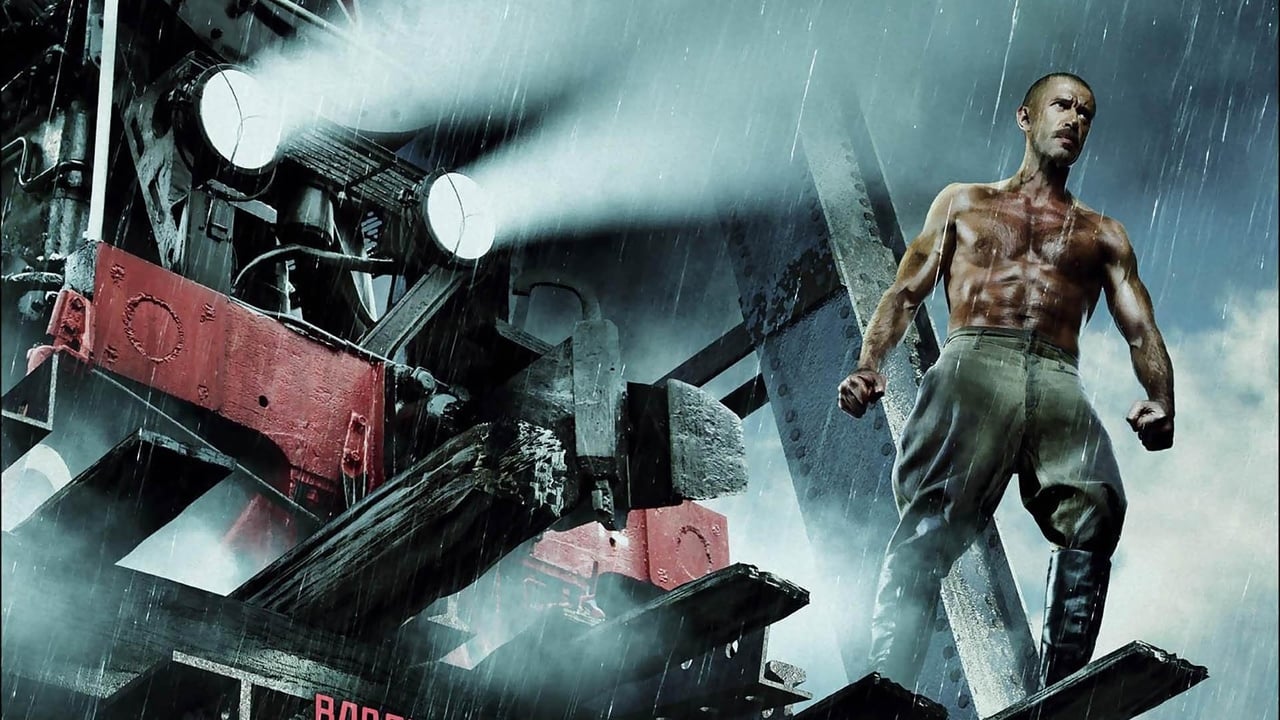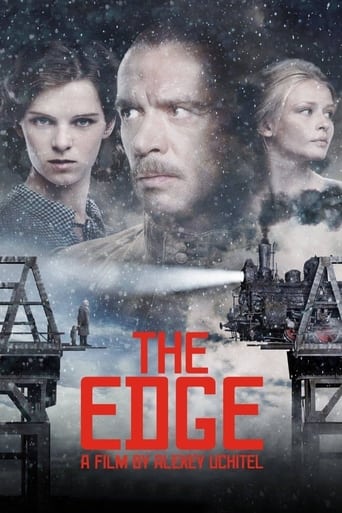

World War II has been one of the most common subjects in cinema for the past seven decades. Practically every country involved in that six-year conflict has made movies about it, including Russia. One example is Aleksey Uchitel's "Kray" ("The Edge" in English), Russia's submission for Best Foreign Language Film at the 83rd Academy Awards.Most of the movie is set in the aftermath of WWII, in a Siberian camp for Soviet troops who had been POWs in Germany, now sent to the camp for "re-education". One of the people there is war hero Ignat, who had wrecked a train. But when he ventures out on a hunch, Ignat finds what could be a new path in life...even if it angers the commissar.To me, the trains represent the struggles that the people in the Soviet Union had endured under Nazi occupation, but also the understanding that the way forward was not going to be an easy task. While the movie doesn't have the intellectual profundity of some Russian movies that I've seen, it does make clear that mere suspicion of collaboration with the Germans could have dire consequences. It's not a masterpiece, but I like how it develops the characters, especially Elsa.Other Russian movies about WWII that I recommend are "The Cranes Are Flying", "Cuckoo" and "Our Own".
... View MoreThere is little about THE EDGE that is not extremely well done. The setting and props are authentic and make you want to pull up a blanket to keep Siberia out. The photography and editing are topnotch; e.g., no lazy cameras, obnoxious close-ups, etc. All characters act according to their described circumstances. I'd bet the script is great but of course I was limited to subtitles. But the most intriguing item about THE EDGE is the plot; i.e., the storyline. Arguably the tale twists but whatever such may be the two lead characters are single-minded and riveted to their goals. The IMDb (and I assume the film's) poster picture is misleading as it suggests some superhero-like character with a Transformer-sized train. Such is decidedly NOT the case. However, the actual train devise becomes even more thrilling because of a plot predicament I won't give away. If I haven't already said so the male and female leads give awesome performances. I rarely gush so much about a movie but how THE EDGE slipped under the critics radar baffles me. Doctor Zhivago has nothing on this film. I predict great things for Anjorka Strechel.
... View MoreI guess this film can be seen as a railroad or train film as some of the reviewers of limited cognitive skills have already observed. And the film's not for anyone who dislikes foreign language films (unless you speak Russian). I love Russian films and this one did not disappoint one bit. But I almost passed on watching it due to some grossly shortsighted reviews left by a larger number of critics than I would have expected.This unpretentious film is skilfully woven with fascinating period detail from post WW2 1940s Russian life. The well researched film demonstrates understanding and depth in its commentary on Politics and life under Stalin as well as everyday peasant life, the food, clothing, the unique colloquialisms (hopefully genuine) - all were a delight to take in, and I think most who give The Edge a chance will be pleasantly surprised.Don't look for a complex or sophisticated plot in this film, although the human qualities demonstrated are as visceral and carnal as the large brown bear which appears several times. But the storyline easily hangs together and works quite well as the period vehicle for what it was intended.Certainly anyone with an interest in trains and locomotives, engineering or physics will enjoy this film, but I feel sorry for the critic who is unable to appreciate the many other delights which the talented director Aleksey Uchitel has given us.
... View MoreSaw the film last night at the Aero Theater in Santa Monica as part of a special Golden Globe viewing. The subject matter of German/Russian relationships, especially during WWII were some of the darkest moments in either countries histories, so this is not an easy subject for film. I was expecting something dark and brutal, which was not the case. This film utilizes black humor very well, akin to the Czech Film Divided We Fall, but it is not a comedy. The relationship between Germany and Russia before, during, and after WWII, including what the governments want us to believe is skilfully examined via the universal truths of the human experience of the characters in the film. Although this is a Russian film, this does not mean the film is any less relevant to a German audience. You do not need to know a lot of Russian German History to understand the film, but there is one key date you do need to know, that is June 1941, when Germany broke the alliance with Russia and invaded. Great film, hope it wins.
... View More